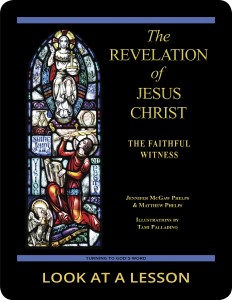predestine
 In his Letter to the Romans 8:29 (NABRE), Paul provides a powerful statement about God’s plan for humanity that he culminates with the familiar: “For those he foreknew he also predestined to be conformed to the image of his Son.” This phrase speaks to the omnipotence of God’s plan, and over the years it occasionally has raised questions about the role of free will in this equation.
In his Letter to the Romans 8:29 (NABRE), Paul provides a powerful statement about God’s plan for humanity that he culminates with the familiar: “For those he foreknew he also predestined to be conformed to the image of his Son.” This phrase speaks to the omnipotence of God’s plan, and over the years it occasionally has raised questions about the role of free will in this equation.
The underlying Greek language provides some interesting insight around God’s plan. The word προορίζω (proorizo) often translated as “predestine” has a very different root connotation than theology tends to give it. Originally it was not a word having to do with the divine plan but rather with planning and marking out boundaries or limits. Planning in advance of a significant project is a normal human activity, and that is what is here being ascribed to God. Paul’s view seems to be that God had a plan in Christ that contained a role for humanity that he was carving out, and God knew and determined in advance that we as people were up to the task.
you also may like our study of the book of Revelation
 The Revelation of Jesus Christ: The Faithful Witness, a 23-lesson Catholic Bible study with an imprimatur, examines ways in which our traditional Christian view of heaven is built on Hebrew apocalyptic visions recorded in the Old Testament. This recently revised study includes maps and additional commentary and takes a close look at the role of the prophets in present-day Christianity. Illustrations by Tami Palladino depict the often-misunderstood images in the book of Revelation. Click on the book’s cover to view a sample lesson.
The Revelation of Jesus Christ: The Faithful Witness, a 23-lesson Catholic Bible study with an imprimatur, examines ways in which our traditional Christian view of heaven is built on Hebrew apocalyptic visions recorded in the Old Testament. This recently revised study includes maps and additional commentary and takes a close look at the role of the prophets in present-day Christianity. Illustrations by Tami Palladino depict the often-misunderstood images in the book of Revelation. Click on the book’s cover to view a sample lesson.
 Click on the picture of the statue of Moses with horns (above) to learn more about Lost in Translation. A new entry is archived each Monday. Contact us to receive Lost in Translation by email every week. You may use any of the contact links on our website to ask Matthew a question.
Click on the picture of the statue of Moses with horns (above) to learn more about Lost in Translation. A new entry is archived each Monday. Contact us to receive Lost in Translation by email every week. You may use any of the contact links on our website to ask Matthew a question.
